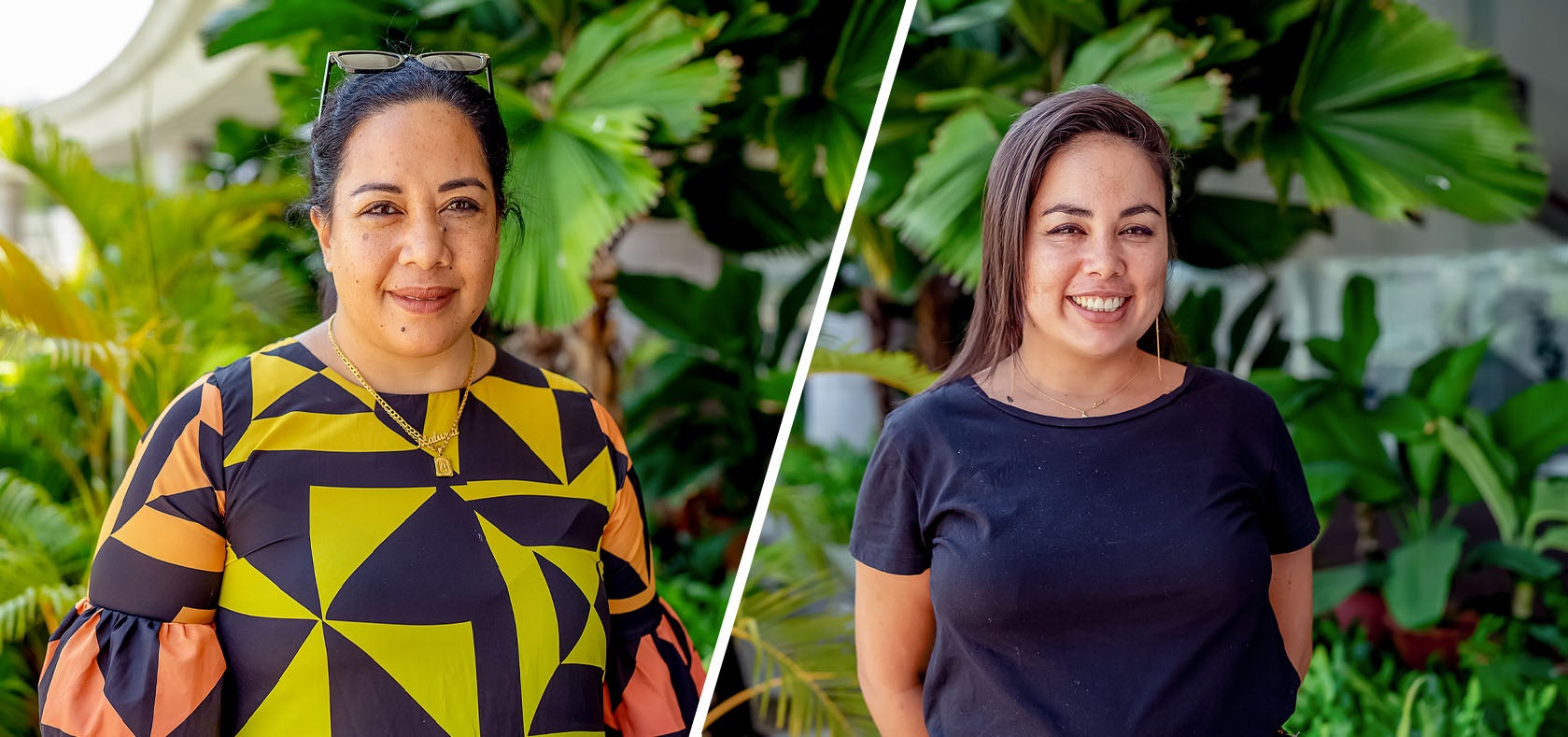Feminist activists from the Pacific reflect on the impact of the Beijing Declaration ahead of +30 Regional Review
Date:

Maluseu Doris Tulifau is a survivor, educator and activist, founder of the Brown Girl Woke, a feminist organization dedicated to empowering young people in rural areas of Samoa. Yasmine Bjornum is a writer and women’s rights activist, founder and Executive Director of Sista, a charitable association for women and girls in Vanuatu. As countries across Asia and the Pacific gear up for the +30 regional review of the Beijing Declaration and Platform for Action[1], UN Women discussed with the two activists the significant strides but also the persistent challenges facing women and girls from the Pacific.
In 1995, representatives from 189 nations unanimously adopted the Beijing Declaration and Platform for Action (BPfA), establishing a transformative blueprint for advancing women's rights. This framework identified 12 critical areas to improve the lives of women and girls worldwide.This year, both Maluseu Doris Tulifau and Yasmine Bjornum, are actively involved in the regional 30th review of the Beijing Declaration and Platform for Action (1995), contributing their expertise and experiences to assess progress and identify ongoing challenges.
Bjornum, Executive Director of Sista, a feminist civil society organization from Vanuatu, started by highlighting the critical need for the Beijing Declaration, reflecting on its role in providing clear action steps and international commitment. "What was so significant about the BPfA is that it recognized that urgent action was needed to ensure greater equality and opportunities for women and girls," she explains. This vision still resonates deeply in Vanuatu, where women face systemic challenges, including limited access to justice and health services, which hinder the full realization of these goals.
Maluseu Doris Tulifau, founder and President of NGO Brown Girl Woke, reflected on the unifying power of the Beijing Declaration. "It was a significant time, with so many women's groups coming together to sign a document, all united for gender equality," Tulifau says. This unity was crucial for setting a global agenda that transcends geographical boundaries.
Decades of progress and ongoing challenges
Despite the initial optimism, progress in gender equality has been uneven. In Vanuatu, Bjornum points to slow advancements, particularly for marginalized women who experience multiple and intersecting forms of discrimination, highlighting the difficult situation of women with disabilities and those in remote areas who don’t have access to basic justice and health services. "We are only scratching the surface on how to ensure we uphold their rights and dignity," she notes.
Bjornum also points out the inadequacies in legislation and representation, "We don’t have enough women in decision-making spaces...Our maternity ward is shocking," illustrating the critical need for increased female leadership in the political sphere.
“Samoa has seen tangible legislative changes, with amendments such as the introduction of a women's quota in the national legislature, ensuring gender neutral language in all legislation or reviewing of the Family Law Legislation. The constitutional amendment in 2013 introducing the 10% quota of women representatives was a significant step forward," Tulifau explains. However, she stresses that gender mainstreaming across various sectors remains a challenge, with many sectors still placing little emphasis on gender equality and social inclusion.
When asked, both activists emphasized the need for strategic action to catalyze further change. Yasmine calls for an overhaul of outdated legislation and a genuine increase in women's leadership roles. "Political will is so important for transformative change," she states. She also highlights the critical role of men in advancing gender equality: "It’s time for men to step up and take responsibility in the prevention of violence against women."
Tulifau advocates for more effective measures to address gender-based violence in Samoa. "We need everyone at the table. We need to look at our constitution and change laws that hinder freedom in our country," she asserts, urging for inclusive and decisive legal reforms. She also emphasizes the need for greater investment in economic empowerment: "The 2022 World Bank's Gender Employment Gap Index finds that, on average, long-run GDP per capita for the Pacific Islands would be around 22 percent higher if gender employment gaps were to close; that if employment rates for women were to match those of men."
Bjornum emphasizes the need for activists to regularly reflect on their motivations and actions. She advises the new generation of women and men activists to continually ask themselves tough questions: why they do what they do, why they believe what they believe, and whether their actions truly reflect their reality and the context of their country. She believes that social media has changed the landscape of social movements for the better, but it also requires regular self-reflection. Tulifau underscores the importance of collective effort, emphasizing that actual progress requires working together, one Pacific country at a time.
As the global community prepares for the 30th review of the Beijing Declaration and Platform for Action (1995) at the Commission on the Status of Women (CSW69) in New York, both Pacific women leaders express hope and determination and see this not just as a time for reflection but also a call to action. They expect more robust engagement from their governments and civil societies to align efforts with the 2030 Agenda for Sustainable Development.
[1] In 2025, the global community will mark the thirtieth anniversary of the adoption of the Beijing Declaration and Platform for Action (BPfA), and 10 years of the Sustainable Development Goals (SDGs). As part of the commemoration, national and regional reviews are conducted to assess current and emerging challenges that affect the implementation of the BPfA and the achievement of gender equality and the empowerment of women and its contribution towards the full realization of the SDGs.